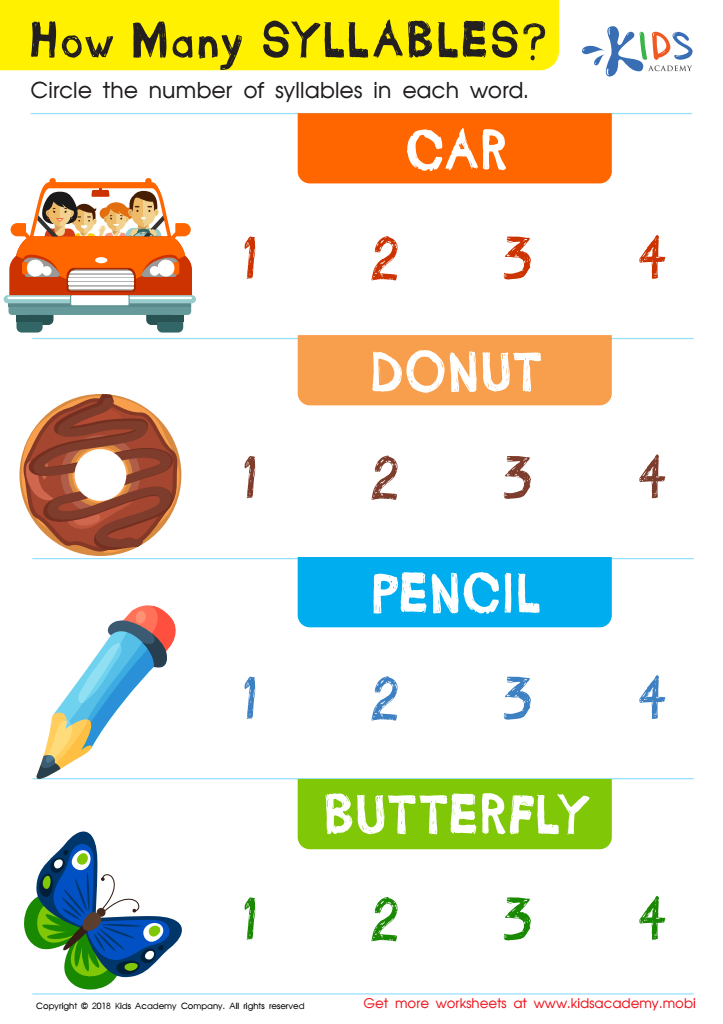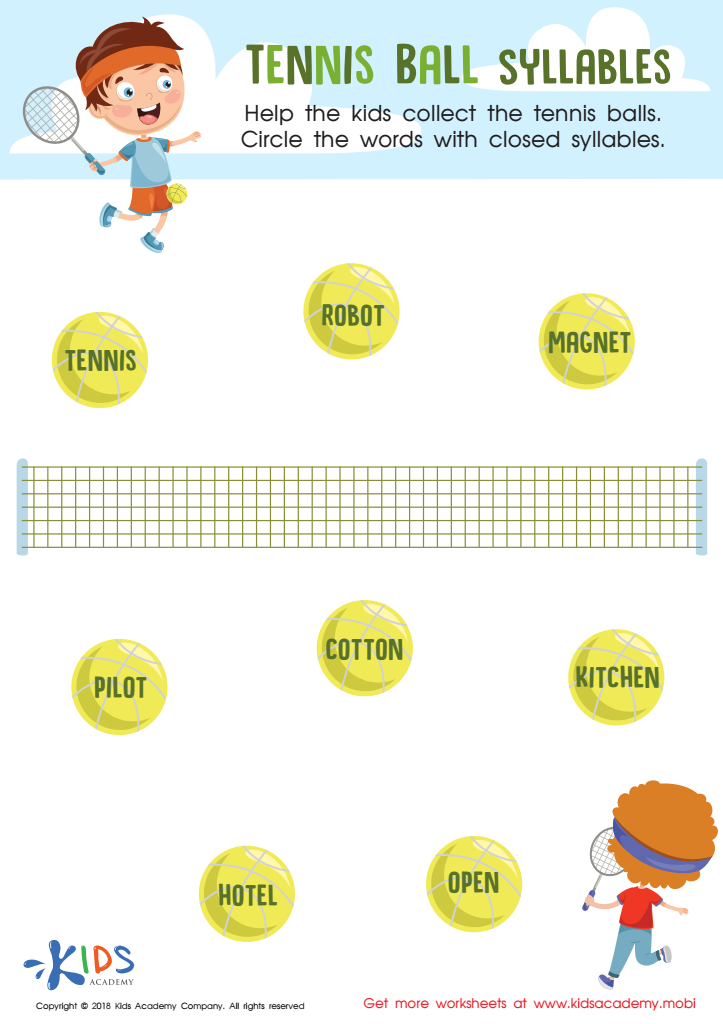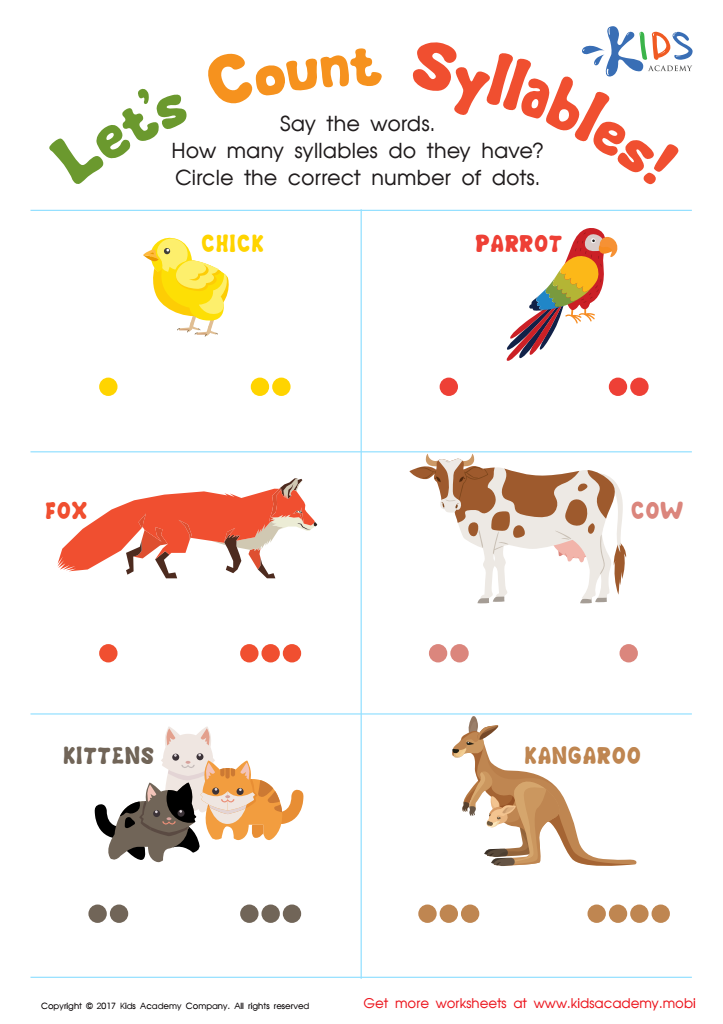Phonological awareness Normal Elementary Phonics Worksheets for Ages 5-9
3 filtered results
-
From - To
Enhance your child's reading skills with our Phonological Awareness Normal Elementary Phonics Worksheets tailored for ages 5-9. These interactive and engaging worksheets from Kids Academy are designed to improve phonological awareness - a key skill in early reading development. Each worksheet focuses on recognizing sounds, blending, segmenting, and manipulating phonemes to build a strong foundation in phonics. Our expertly crafted activities support young learners in identifying rhyming words, syllables, and initial sounds, making learning fun and effective. Perfect for parents and teachers, these worksheets are an excellent resource to boost your child's phonics proficiency and reading confidence. Download today to get started!


How Many Syllables? Worksheet


Tennis Ball Syllables Worksheet


Lets Count Syllables Worksheet
Phonological awareness is crucial for children's early reading and language development, especially for ages 5-9. At this stage, their brains are primed for acquiring linguistic skills, and a strong foundation in phonological awareness sets the stage for successful reading and writing. Phonological awareness involves recognizing and manipulating the sounds in words, like identifying rhymes, counting syllables, and breaking down words into their individual sounds (phonemes). This skill helps children understand the sound structure of language, making it easier for them to decode new words and enhances their spelling abilities.
Normal elementary phonics goes hand-in-hand with phonological awareness. Phonics teaches children the relationship between letters and sounds, helping them to read and write more effectively. For example, once a child understands that the letter 'B' corresponds to the /b/ sound, they can begin to read words like "bat" or "ball."
Parents and teachers should care because numerous studies have shown that strong phonological awareness and phonics skills are predictors of later reading success. Children who struggle in these areas are more likely to face reading difficulties. By fostering these skills early, parents and teachers provide children with the essential tools they need for academic achievement and lifelong literacy, ensuring they'll have the confidence and competence to tackle more complex language tasks as they grow.
 Assign to My Students
Assign to My Students









